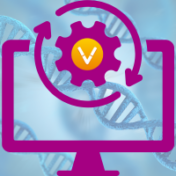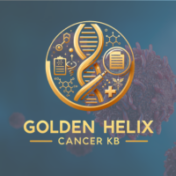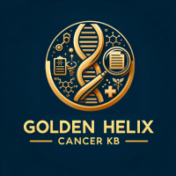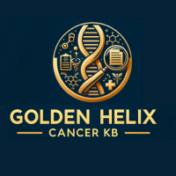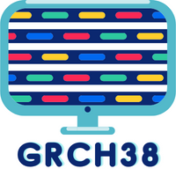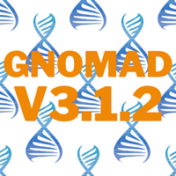About Julia Love
Julia Love is a Genomic Curator and Product Quality Manager at Golden Helix, joining the team in June of 2019. Julia graduated from Kennesaw State University with a bachelor's degree in Biology, followed by earning a master's degree in Molecular Biology with a focus in Neuroscience from Boise State University. When Julia is not providing support and training to Golden Helix customers, Julia enjoys backpacking, canoeing, and spending time with friends and family.
I am pleased to announce that VarSeq 2.6.2 is now available! VarSeq 2.6.2 comes jammed-packed with new features and capabilities to advance your NGS analysis workflows. In this blog, I will describe the major changes to the VSPGx workflow, which were the main focus of the release, and I will also talk about other exciting features and new algorithms that… Read more »
You might have noticed an uptick in the number of interpretations associated with hematological cancers within the Golden Helix CancerKB database over the past several months. This is because the CancerKB curation team has been focused on bolstering our drug sensitivity, diagnostic, and prognostic interpretations. This project has had the team reading through the NCCN Guidelines, WHO Guidelines and International… Read more »
The FDA approved the first medical therapy for desmoid tumors only a few months ago! What’s the big deal, right? Desmoid tumors are non-cancerous and can’t even metastasize. Well, in this blog post, I want to discuss these interesting tumors, and you will find that not only are these tumors anything but benign, but Golden Helix CancerKB has you covered… Read more »
This last Wednesday we introduced VarSeq Dx Mode which enables customers to use VarSeq as a CE marked in vitro diagnostic medical device! If you missed our live webcast, no problem! You can watch the recording here. In brief, we started out discussing IVDR and that it establishes standardization for medical devices and their manufacturers that market and sell these… Read more »
We have been building up to the final release of VarSeq 2.6.0 for a couple of weeks now, but we are excited to announce that 2.6.0 is officially available! VarSeq 2.6.0 is an exciting release as this version of VarSeq features the introduction of VSPGx, offering a complete pharmacogenomic workflow, including data import, variant analysis, and report generation. We have… Read more »
Thanks to all of you who were able to attend the live webcast introducing the newest genomic analysis tool within VarSeq, VSPGx! For those of you who could not make it to the live presentation and demonstration, I will fill you in on what we covered. If you would like to watch or re-watch the webcast, you can access the… Read more »
The Broad Institute’s release of gnomAD v4 needs no introduction as the data in this release is highly sought after by professionals in the genetics community, and the v4 release has a lot to boast about! The v4 release is roughly five times larger than the v2 and v3 releases combined and includes data from 807,162 total individuals. Naturally, exome… Read more »
Today, we will be exploring the indispensable role of GenomeBrowse in your VarSeq workflows. This blog aims to guide you through various customization options, including color preferences, filtering techniques, display modifications, numeric value plotting, and additional tips. I hope to enhance your GenomeBrowse experience and enable you to gain valuable insights into your data. Let’s jump in by talking about… Read more »
I am very excited to announce that a new version of Golden Helix CancerKB has been released! This new version of CancerKB comes with some exciting upgrades bolstering the gene interpretations and cancer gene evidence. Before I jump into the details of the new information that is now in CancerKB, I want to give everyone a quick reminder of what… Read more »
As many of you may already know, we just released VarSeq version 2.5.0 this month! We have talked about the two headlining features a bunch, but we have not focused on what else has changed in VarSeq 2.5.0 that might also strike your fancy. For those of you who might just now be tuning into the hype around 2.5.0, it… Read more »
Recently, we have written a couple of blogs that were talking about the use of Evaluation Scripts in VSClinical workflows, in particular for the AMP workflow. Evaluation scripts were first introduced to VSClinical AMP in VarSeq 2.3.0 and VarSeq 2.4.0 welcomed evaluation scripts to the ACMG Workflow. Evaluation scripts are a nifty way to customize your workflow and say import… Read more »
Assessment catalogs are a way for VarSeq users to save variants and variant information for clinically relevant variants, so when you come across this variant again in another sample, all of the work to analyze and classify the variant is already done! But there is more than meets to the eye when it comes to using assessments in VarSeq. Being… Read more »
VarSeq 2.3.0 unleashed a whole new way to select, process, analyze, and report cancer variants through complete workflow automation, application of evaluation scripts, and enhanced annotation. Single nucleotide variants, copy number variants, structural variants, and genomic signatures could be added to a single patient evaluation, and Golden Helix CancerKB came packed with new report-ready interpretations to support them! Soon after,… Read more »
Greetings VarSeq users! VarSeq 2.4.0 has officially been released. VarSeq 2.4.0 is a significant release that focuses on enhancing the VSClinical ACMG workflow by introducing new features and noteworthy improvements. The major highlights of the release are: 1. Welcoming structural variant support to the VSClinical ACMG workflow 2. ACMG workflow automation has been enhanced via the application of evaluation scripts… Read more »
Use the force of evaluation scripts to automate and customize your VSClinical ACMG workflow in VarSeq 2.4.0. VarSeq 2.3.0 came packed with new features! Most notably, VarSeq variant analysis expanded to support the import and annotation of structural variant files, and the AMP cancer workflow in VSClinical gained new functionality with the addition of evaluation scripts which help automate and… Read more »
Discover the latest advancements in cancer genomic profiling with the release of VarSeq 2.3.0 We are very excited to announce the release of VarSeq 2.3.0! This release was one of the largest VarSeq releases yet, as it includes a large refactor to the VSClinical AMP cancer module. A primary motivation for the release was focused on the availability and increased… Read more »
I’d like to take a moment to announce the release of updated gene tracks for the GRCh38 genome assembly! Gene annotation tracks are essential to all VarSeq projects and workflows. Whether your favorite gene track is Ensembl or RefSeq, both sources have been updated and released and can be used for variant annotation. These gene tracks are used to annotate… Read more »
Golden Helix is always trying to add new helpful resources to aid in using Golden Helix products for NGS analysis. In today’s blog, I am very excited to introduce a new resource for Golden Helix users! A new resource that is now available is our Golden Helix Annotations product page available on the Golden Helix Learning Hub! The goal for… Read more »
In this blog post, I am very excited to talk about The Broad Institute’s release of the latest version of gnomAD, v 3.1.2, which is now available for use as an annotation source in your SVS or VarSeq projects. For VarSeq users, I also want to point out that gnomAD v3.1.2 can also be used as a population frequency in… Read more »
We would like to announce that a new version of SVS has been released! The headlining feature of the SVS 8.9.1 release was new functionality for Large Data Principle Component Analysis. A detailed description of this new feature can be explored in this recent blog post: Finding a Few Principal Components Quickly from Data with Thousands of Samples. However, there… Read more »
